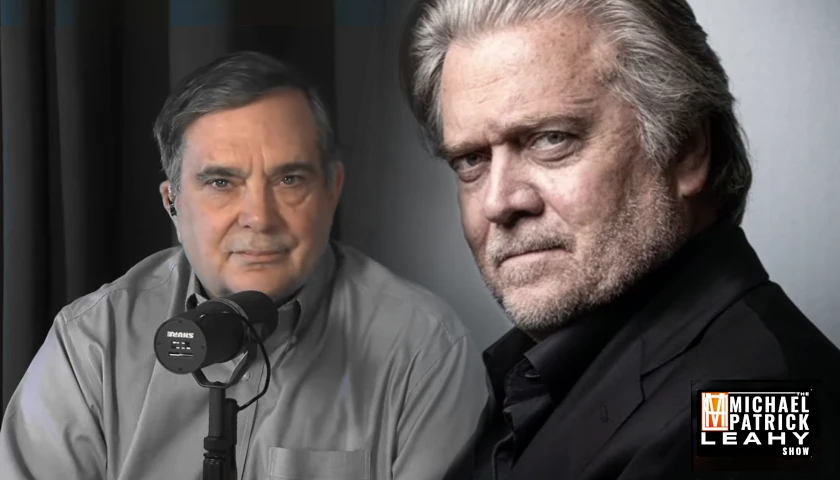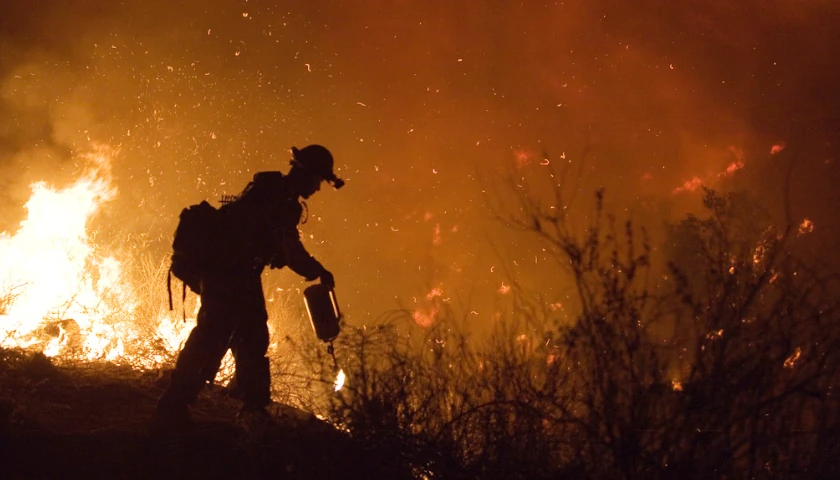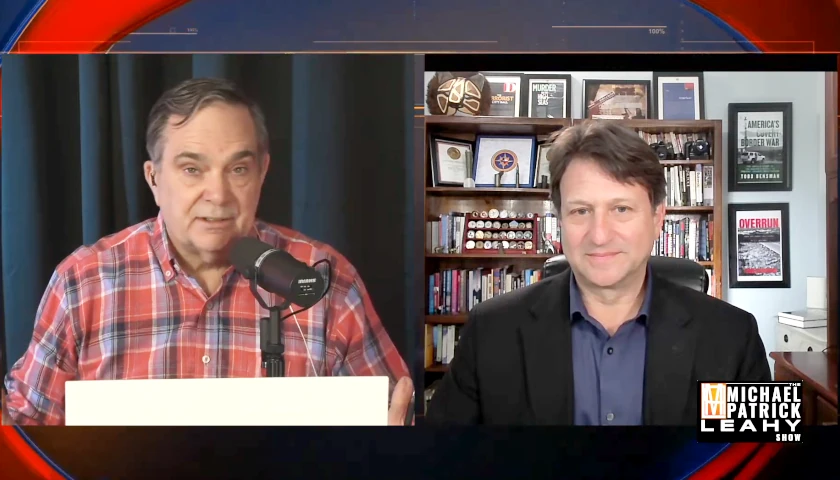Host Michael Patrick Leahy lays out why Gov. Bill Lee’s “Laundry List Red Flag Law Special Session’ breaks with modern political tradition in Tennessee. He also explains the surprising reason his ‘Red Flag’ law is doomed to fail in court on Friday’s episode of The Tennessee Star Report.
TRANSCRIPT
Michael Patrick Leahy: Well, we’re looking at this special session call Governor Bill Lee had – his ill-advised call [for a special session that will convene on Monday, August 21.]It’s going to be an opportunity for the Left wing to descend upon the capital on Monday and try to intimidate Tennessee General Assembly members to adopt gun control measures and a Red Flag law.
We’ll get to those details here in just a minute, but let’s talk about the history of special sessions. It’s supposed to be on extraordinary occasions.
The modern political tradition here in the state of Tennessee is to take care of the business of the state during the general session of the Tennessee General Assembly, which convenes in January and typically runs to April or May.
And when you have an opportunity for committee hearings and for more deliberate consideration of a wide array of laws – well, in modern political history here in Tennessee, the tradition is quite clear.
Until this debacle from Governor Bill Lee, ‘The Laundry List Red Flag Law Special Session,’ I’m calling it – the five previous special sessions called by Governor Bill Lee and the three special sessions called in the administration of Governor Bill Haslam were all nearly focused on one, main particular topic. And then there would be anywhere from one to six bills to consider for action upon as legislation.
One to six, right?
Because it makes sense – a special session should be special. And the tradition – the modern tradition here in Tennessee – has been, have it all set up. Have three or four bills ready to go. Bring them in and discuss them in three to four days. Boom. Get the bills done and get out.
That’s been the modern political tradition.
Bill Lee, however, has decided to go back to the bad old days, more than a century ago, to the ‘laundry list’ approach to special sessions where they are in effect, yet another general session.
What do I mean by that?
Well this is kind of the research that we’ve done so far. It’s not complete. But we’ll say that if you look at the history of Tennessee, since this 1870 Constitution was adopted, special sessions from about 1870 to 1913 – as best we can tell – were in the current modern tradition, which was one main topic and maybe, one to six bills to be addressed, all related to that one main topic.
A governor of Tennessee, one of the few Republican governors between Reconstruction and Winfield Dunn in 1970 – I think there were three of them, this guy was one – was called Ben Ward Hooper. He was a Republican. . . He was elected in 1910. He was elected to, the first of his two year terms, and then reelected in 1912 to another two year term – it was two year terms at that time, and then lost in 1914 – and I think it might have to do with the “laundry list” special session he put together.
But the previous special sessions, as best we can tell, were more narrowly focused. He invented the laundry list special session and wasn’t challenged at that time, which he probably should have been challenged in the court as to his authority to do that.
So we’ve got some precedent there, that he established.
I’ve got the proclamation and you’ll see this proclamation.
We’ll do a transcript story at The Tennessee Star on what I’m talking about right now. Everything I’m talking about, you’ll see in the story at The Tennessee Star later today, and we’re going put this proclamation from 1913 up, August 28th, 1913.
It’s very interesting, how they did proclamations back then. It’s on lined paper and with an old typewriter, but Governor Ben Ward Hooper,who was an exemplary person in many ways, but was in a very contested period of history here in Tennessee. He was what was called a “fusionist” governor, and it’s hard to kind of understand all of this, but he was a Republican that got in narrowly at a time when . . . the Democrats were fighting amongst themself – there was a Prohibition group, and a group opposed to Prohibtion.
Remember, this was before Prohibition, which was the law of the land in the U.S. from what – 1919 and 1933 . . .
The Republicans were also fighting among themselves a little bit, but not as much.
Hooper became the governor. It was a very chaotic period of time in the history of Tennessee, and he had trouble getting legislation through the General Assembly because it was a Democrat controlled General Assembly at that time.
But he had trouble getting legislation through. So what he decided is, ‘I’m gonna show them’ – and he put together, because they wouldn’t pass in the general session what he wanted, so what he did is he put out a Proclamation for a special session. And you’ll see it in the story.
We got it from the Tennessee State Archives. They were very nice, very helpful. Just got it yesterday.
Would you like to know how many bills this guy proposed in that special session that was held in September 1913?
I counted them.
215.
And so basically, that was the break from what I can tell from the original intent of the Tennessee State Constitution to this “laundry list” special session, which was really a second general session.
And, you know, they met for three weeks and they – now, a lot of them were local bills – but fast forward to the breaking of the modern political tradition by Bill Lee with this laundry list here of 18 bills that he wants to be considered next week. It is a break from modern political tradition.
I suppose you could argue you could go back and make an argument that it’s not Constitutional is called, but the problem you would have with a lawsuit like that is you’ve got this Ben W. Hooper 1913 Proclamation with 200 with a bigger laundry list of 215 bills, right?
So you could say that Governor Bill Lee is trying to turn the clock back over a hundred years by reintroducing the idea of a “laundry list” second general session masquerading as a special session.
Now, having said that, there’s a really, really bad idea here which is item 12 of the 18. And it is, in essence, a camouflaged Red Flag law.
If I could read this thing to you right now, this is the 12th of the 18 things he wants passed.
It’s a bit:
“Temporary mental health orders of protection, which must be initiated by law enforcement must require a due process hearing, must require the respondent to undergo an assessment for suicidal or homicidal ideation, must require law enforcement to prove its case by clear and convincing evidence, must require that an order of protection be reevaluated at least every 180 days, and must not permit ex parte orders.”
Okay, we’ve looked at case law and case precedent.
Go back to that, that “laundry list” 1913 special session.
There was a law that came out of that special session was challenged in court . . .
So I referenced a Supreme Court case here in Tennessee that is relevant to some of the 18 proposals [identified in Gov. Bill Lee’s proclamation declaring a special session of the Tennessee General Assembly to convene on Monday], or particularly the 12th proposal, which I’m calling the “Red Flag Law Light” that’s very specific that the governor included in his proclamation.
The case in question is National Conservation Exposition v. Woolen State Comptroller.
It’s a Tennessee Supreme Court decision from 1913, and the main point from that decision was that a law passed in that special session was ruled void because it did not address the specific proposal of law–one of those 215 items–that Gov. Hooper set forth in his proclamation.
But here what the State Supreme Court also stated in that decision: “While the governor may limit the subjects of legislation, he cannot dictate to the legislature the special legislation they shall enact on those subjects.”
And so that particular one in Gov. Bill Lee’s 18 item “laundry list,” –item 12, the camouflaged Red Flag law–which had about five “musts” in it is very specific, and therefore any legislation in that arena if challenged in a court of law would probably be ruled void and unconstitutional.
…
Item number 12 is so specific, if any such law were to be passed in this Tennessee General Assembly, it would be challenged in court. We would challenge it in court and we’re pretty sure that the State Supreme Court would rule that it was not valid because it violated separation of power.
So, anybody out there – Democrat, whatever – you’re thinking of versions of this Red Flag law? It won’t survive a court challenge, in my view.
And we will be happy to lead the way in challenging that.
Alright.
Probably more than you ever wanted to know about the history of special sessions in Tennessee, but hey, it’s upon us, it’s being forced upon us by an ill-advised governor who ultimately, his goal there is to jam through gun control and Red Flag laws.
And hopefully the Tennessee General Assembly will realize this is a bad idea and respond accordingly. . .
Read Gov. Ben W. Hooper’s 1913 proclamation for a special session of the Tennessee General Assembly.
– – –
Tune in weekdays from 5:00 – 8:00 a.m. to The Tennessee Star Report with Michael Patrick Leahy on Talk Radio 98.3 FM WLAC 1510. Listen online at iHeart Radio or Spotify.




